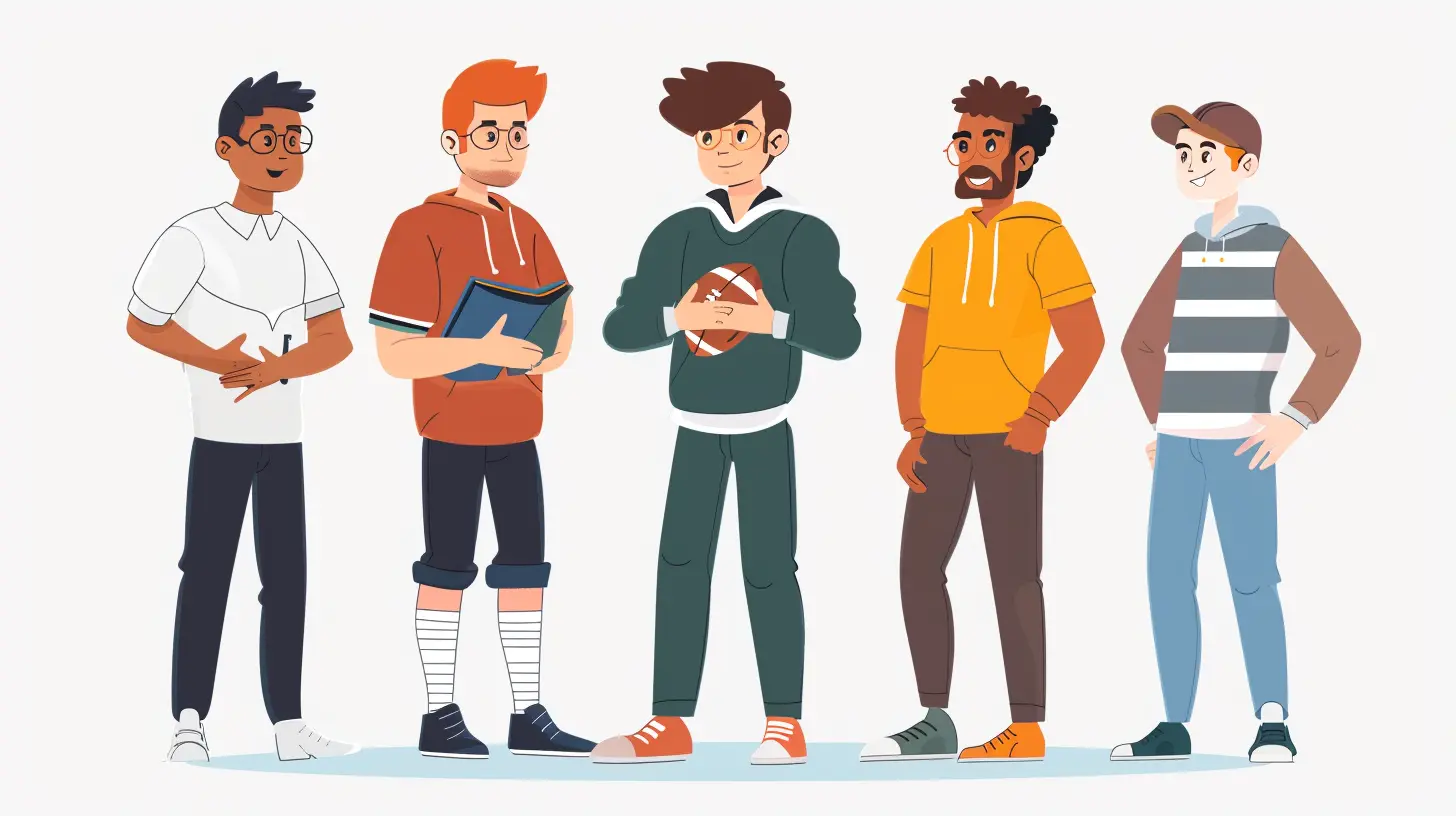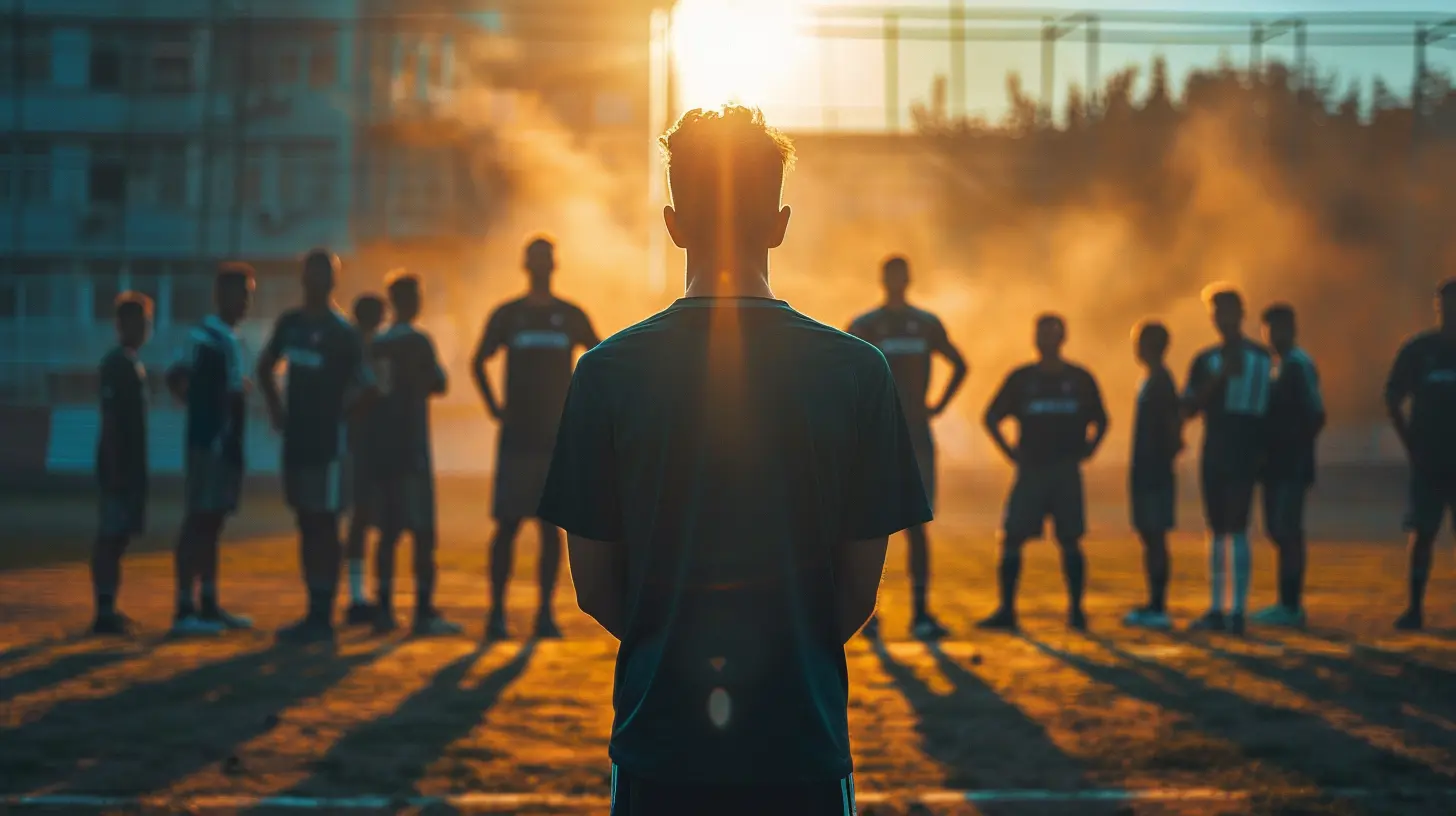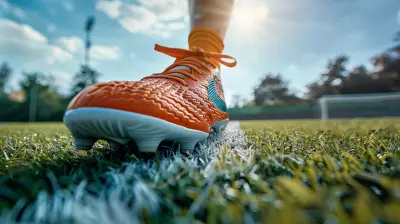The Role of Assistant Coaches in Team Development
5 October 2025
When we think about a successful sports team, the spotlight often shines bright on the head coach and star players. But if we zoom out just a bit, we’ll see a group of individuals working behind the scenes—assistant coaches—playing an enormous role in shaping the team’s performance, culture, and growth.
Let’s be real: sports is a team game, both on and off the field. And when it comes to building a championship-worthy squad, assistant coaches are the unsung heroes who often make all the difference. So, how exactly do they impact team development? Buckle up—we’re diving deep into the playbook.
Why Assistant Coaches Matter More Than You Think
Ever watched a game and noticed a coach furiously scribbling notes or whispering into a player's ear during a timeout? Chances are, that was an assistant coach. They’re the glue holding everything together—the right-hand support that allows head coaches to lead without burning out.Assistant coaches aren't just mini-me versions of the head coach. Each one typically brings a unique skill set to the table: strategy, player development, game analysis, and even emotional support. Think of them as the utility knives of the coaching world—versatile, reliable, and always ready to step up.
Team Development: It's More Than Just Winning Games
Let’s unpack what team development actually means. It goes beyond stacking up wins. It’s about:- Creating a winning culture
- Improving player skills
- Building team chemistry
- Fostering leadership
- Planning for long-term success
Now imagine trying to do all that alone. Yeah, exactly—virtually impossible. That’s why assistant coaches are integral. They take the load off the head coach and focus on specialized areas to ensure the entire team evolves season after season.
Key Roles Assistant Coaches Play
1. Player Development Specialists
One of the most crucial responsibilities assistant coaches carry is working one-on-one with players. Whether it’s improving a basketball player’s shooting form, honing a quarterback’s throwing accuracy, or helping a striker perfect their first touch, assistant coaches are usually the ones in the trenches.They’re the ones breaking down hours of game footage, running extra drills after practice, and crafting personalized development plans. Essentially, they’re the personal trainers of the sports world—only with a lot more chalkboard strategy and a dash of tough love.
2. Strategic Minds Behind the Game Plan
While head coaches decide the overall strategy, assistant coaches help refine it. They’re the ones dissecting opponents’ tendencies, identifying weaknesses, and suggesting tweaks on the fly.Imagine a chess grandmaster with a team of analysts each focused on specific moves or pieces. That’s how assistant coaches operate. Some focus on offense, others on defense. Some manage special teams. Their strategic input often makes the difference between a win and a loss.
3. Culture Carriers and Mentors
Assistant coaches do more than just teach skills—they shape character. They serve as mentors, role models, and sometimes even therapists. When players hit a rough patch—on or off the field—it’s often the assistant coaches who step in to guide, motivate, and listen.They help enforce the coach’s vision and values while ensuring every player feels seen and supported. In many cases, players develop stronger bonds with assistant coaches simply because they're more accessible.
4. Bridge Between Head Coach and Team
Let’s face it—players might not always feel comfortable opening up to the head coach. That’s where assistant coaches come in. They're often the mediators who relay concerns, offer feedback, and translate complex strategies into digestible action plans.They act as the connective tissue that keeps communication flowing smoothly throughout the organization. Without them, things can break down pretty fast.
5. Scouting and Recruitment
This is a big one, especially in collegiate and pro-level teams. Assistant coaches often hit the road to scout rising talents, attend showcases, and build relationships with potential recruits.Their evaluation reports can heavily influence recruitment decisions. They’re not just looking at stats—they’re watching body language, work ethic, and how young athletes respond under pressure. In short, they help shape the future of the franchise.
The Evolution of the Assistant Coach Role
In the past, assistant coaches were seen more as support staff than leaders. But today, that dynamic has shifted dramatically. With sports becoming more data-driven and specialized, assistant coaches are now indispensable.Modern assistant coaches wear multiple hats. They're analysts, tech users, psychologists, and motivators. Whether it’s working with wearable tech to monitor player fatigue or using software to track opponent strategies, they’ve embraced innovation to elevate performance.
Many assistant coaches are also being prepped for the top job. Some of the most successful head coaches today—think Steve Kerr (NBA), Mike Tomlin (NFL), or Jill Ellis (USWNT)—started as assistants. They've walked the path, learned from great mentors, and carried forward their experiences.
How Assistant Coaches Shape Team Identity
Let’s flip the script for a second. What happens when a team doesn’t have strong assistant coaches?You’ll likely see inconsistency in play, poor player development, and lackluster chemistry. That’s because assistant coaches often shape the identity of different units within the team—like offense, defense, or special teams. They build subcultures that align with the head coach’s vision but have their own flavor.
Imagine a football team without a solid offensive coordinator. The head coach might preach strategy, but without someone focused on execution day in and day out, it falls apart.
In contrast, great assistant coaches inject passion, energy, and expertise into their domains. Over time, that spirit becomes infectious, and every corner of the locker room echoes the values they promote.
Challenges Assistant Coaches Face
Of course, it’s not all smooth sailing. Assistant coaches often work under the radar, receiving less credit and more pressure. Their job stability is tied to the head coach’s fate. And unlike athletes, they don’t have fans chanting their names.Plus, balancing their roles—between being supportive yet authoritative, approachable yet intense—is a tightrope walk. But ask any assistant coach why they do it, and the answer is always the same: love for the game and love for the growth process.
Real-Life Examples: Assistant Coaches Who Made a Huge Difference
Let’s name-drop a bit. There are countless stories of assistant coaches who made a major impact.- Luke Walton took over the Golden State Warriors as interim head coach while Steve Kerr was out and guided the team to a historic 24–0 start during the 2015–16 NBA season.
- Brent Venables, formerly Clemson’s defensive coordinator, was instrumental in building their powerhouse defense and won multiple national titles before becoming a head coach at Oklahoma.
- Becky Hammon, an assistant with the San Antonio Spurs, broke barriers and brought undeniable impact, becoming the first woman to act as head coach during an NBA game.
These aren’t just feel-good stories—they’re proof that assistant coaches are vital to a team's DNA.
Final Whistle
Let’s put it all together: assistant coaches are strategic architects, player whisperers, culture builders, and the pulse of the locker room. While they might not be the ones in the press conference spotlight, their fingerprints are all over every win, every comeback, and every championship celebration.So next time you watch your favorite team take the field, court, or pitch, take a second to appreciate the people in the background—because the real magic often happens behind the scenes.
all images in this post were generated using AI tools
Category:
Team SportsAuthor:

Ruben McCloud
Discussion
rate this article
1 comments
Zarenith Coleman
Assistant coaches are the unsung heroes of team development. They provide critical support, tactical insights, and mentorship, shaping players' skills and fostering a cohesive team culture. Their contributions are vital for sustained success and growth.
October 21, 2025 at 11:51 AM

Ruben McCloud
Absolutely! Assistant coaches play a crucial role in player development and team dynamics, often going unnoticed but essential for long-term success. Their expertise and support are invaluable assets.


